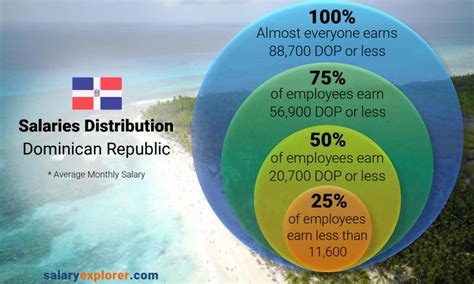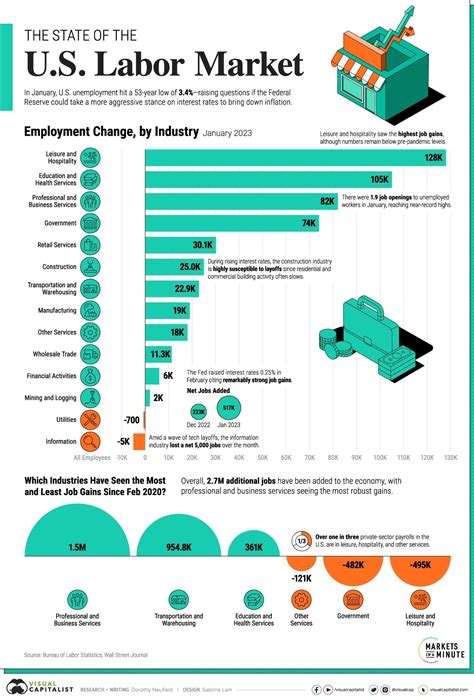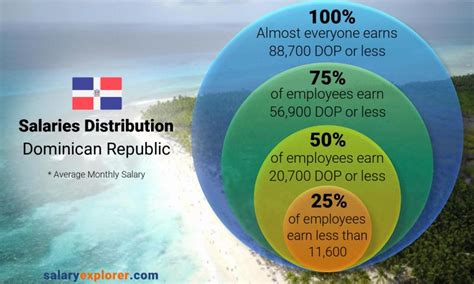For professionals, entrepreneurs, and expatriates considering opportunities in the Caribbean, the Dominican Republic presents a dynamic and growing economic landscape. But what can one expect to earn? Understanding the average salary is a critical first step in evaluating your career potential in this vibrant nation. While a single number can provide a benchmark, the reality of compensation is shaped by numerous factors.
This guide delves into the data to provide a clear picture of the average salary in the Dominican Republic, the key drivers that influence earnings, and the economic outlook for professionals.
Understanding the "Average Salary" Metric

Before diving into the numbers, it's important to understand what an "average salary" represents. This figure is typically the national mean—the total of all salaries divided by the number of workers. While useful, it can be skewed by a small number of very high earners.
In the Dominican Republic, salary discussions often involve two key figures:
1. The National Average Salary: This includes workers in both the public and private sectors, across all industries.
2. The Minimum Wage (Salario Mínimo): This is the legal floor for earnings, which critically varies based on the size and type of the company.
Analyzing both provides a more holistic view of the country's compensation landscape, from entry-level roles to the highest-paying professions.
What is the Average Salary in the Dominican Republic?

According to the most recent data, the average salary in the Dominican Republic shows steady growth, reflecting its status as one of Latin America's strongest economies.
As reported by the Dominican Republic's Central Bank (Banco Central de la República Dominicana) in late 2023, the national average monthly salary was approximately RD$38,898. For the formal private sector, the Tesorería de la Seguridad Social (TSS) reported a slightly different average of RD$32,374 per month as of early 2024.
It's crucial to contextualize this with the country's tiered minimum wage system, which was updated in 2023. The monthly minimum wages are set as follows:
- Large Companies: RD$24,150
- Medium Companies: RD$22,138
- Small Companies: RD$14,835
This means a typical salary range for a formal employee can span from the minimum wage of around RD$15,000 for an entry-level position at a small company to well over RD$100,000 - RD$200,000+ for senior, highly specialized professionals in high-demand fields. For example, salary aggregator Salary Explorer notes a general salary range from RD$9,810 (lowest average) to RD$173,000 (highest average), illustrating the vast spread in potential earnings.
*(Note: Salaries are in Dominican Pesos (DOP or RD$). Exchange rates fluctuate, but for context, the rate is often around 58-60 DOP to 1 USD.)*
Key Factors That Influence Salary

The national average is just a starting point. Your actual earning potential will be determined by a combination of personal and economic factors.
###
Level of Education
Education is a primary determinant of salary in the Dominican Republic. A professional with a bachelor's degree (Licenciatura) can expect to earn significantly more than someone with only a high school diploma. Advanced degrees, such as a Master's or a Ph.D., command even higher salaries, particularly in specialized fields like finance, medicine, and engineering. Certifications in high-demand areas (e.g., project management, digital marketing, or specific software) can also provide a substantial salary boost.
###
Years of Experience
Experience is universally valued, and the Dominican job market is no exception.
- Entry-Level (0-2 years): Professionals starting their careers will likely earn a salary closer to the national average or the upper tiers of the minimum wage, depending on the industry.
- Mid-Career (5-10 years): With proven skills and a track record of success, professionals can expect to earn significantly above the national average. This is the stage where individuals often move into management or senior technical roles.
- Senior/Executive Level (15+ years): Top-level executives, directors, and seasoned specialists command the highest salaries, often several times the national average. Their compensation may also include substantial bonuses and other benefits.
###
Geographic Location
Where you work in the Dominican Republic matters. Economic activity is concentrated in a few key urban and tourist areas, which offer higher wages to attract talent.
- Santo Domingo: As the capital and largest economic hub, Santo Domingo generally offers the highest salaries and the widest range of professional opportunities, particularly in finance, government, and corporate sectors.
- Santiago de los Caballeros: The country's second-largest city is a major center for industry, free-trade zones (zonas francas), and services, with competitive salaries that are often slightly lower than the capital.
- Punta Cana / Bávaro: This eastern region is the heart of the tourism industry. While service-level jobs may align with lower wage scales, management, marketing, and executive positions in the hotel and hospitality sector can be very lucrative.
###
Company Type
The type of organization you work for has a major impact on your pay.
- Multinational Corporations (MNCs): Foreign-owned companies and MNCs typically pay the highest salaries and offer the most comprehensive benefits packages to attract top-tier local and international talent.
- Free-Trade Zone (Zona Franca) Companies: These companies, focused on manufacturing and services for export, are a huge part of the economy and often offer competitive, formal-sector wages that are above the national average.
- Large Local Companies: Well-established Dominican companies in sectors like banking, telecommunications, and retail offer competitive salaries but may sometimes lag behind their multinational counterparts.
- Small and Medium Enterprises (SMEs): These businesses form the backbone of the local economy but generally have more limited budgets, with salaries aligning more closely with the national average and tiered minimum wage scales.
###
Area of Specialization
As in any country, your profession dictates your earning potential. High-demand fields that require specialized skills command premium salaries.
- High-Paying Sectors: Technology (software development, cybersecurity), Finance (banking, investment analysis), Medical (specialist doctors, surgeons), and Senior Management (C-suite executives) are consistently among the highest-paid professions.
- Growth Sectors: Areas like logistics, renewable energy, digital marketing, and high-end tourism are experiencing rapid growth, creating a high demand for skilled professionals and driving salaries upward.
- Traditional Sectors: Roles in agriculture and general administration may offer salaries closer to the national average, though leadership positions in these areas are still well-compensated.
Economic and Job Market Outlook

The job outlook in the Dominican Republic is broadly positive. The World Bank and International Monetary Fund (IMF) consistently praise the nation for its strong economic growth, which has been one of the most robust in the Latin America and Caribbean region for decades.
Key growth drivers creating future job opportunities and potential for salary increases include:
- Tourism: The continued expansion and sophistication of the tourism sector.
- Nearshoring: The country's strategic location and stability are making it a prime destination for international companies looking to move their operations closer to North American markets.
- Logistics and Trade: Major investments in ports and infrastructure are positioning the DR as a critical logistics hub for the Caribbean.
- Technology & Services: A growing tech ecosystem and a strong services sector are creating new, high-value jobs.
Unlike in the United States, there is no direct equivalent to the U.S. Bureau of Labor Statistics (BLS) that provides detailed long-term occupational projections. However, national economic plans and reports from the Ministry of Economy, Planning, and Development (MEPyD) point toward sustained demand for skilled professionals, particularly those who are bilingual (Spanish/English) and possess strong technical skills.
Conclusion

The "average salary" in the Dominican Republic is a useful but incomplete metric. While the national average hovers around RD$38,898 per month, your personal earning potential is a far more nuanced figure. For prospective students and professionals, the key takeaway is that opportunity is abundant for those who invest in their development.
By pursuing higher education, gaining valuable experience, and targeting high-growth industries in key economic centers, you can position yourself to earn a salary that far exceeds the national average. The Dominican Republic's strong economic trajectory suggests that the demand for skilled, dedicated, and strategic professionals will only continue to grow, making it a compelling destination for building a successful career.
